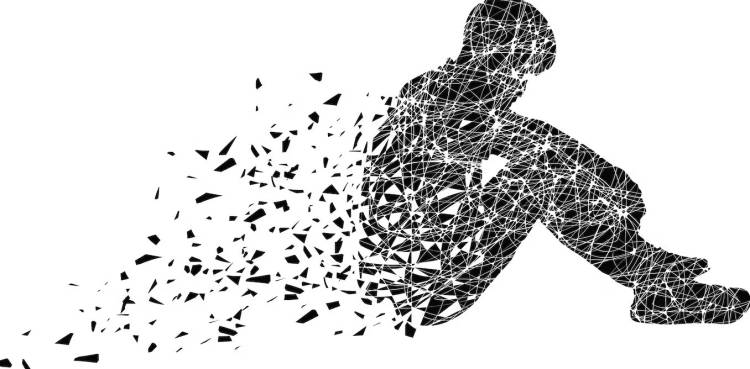
Ways to Identify the Signs of Depression
A low mood is a normal reaction to life’s struggles, but if it’s persistent and does not improve, depression may be the cause. Depression can also appear as physical symptoms such as a tightened chest, constant headaches, or digestive problems.
Identifying the warning signs of depression can help you pick up on a struggling loved one or coworker. Here are some of the most common symptoms of depression:
Feelings of hopelessness and helplessness
Feelings of hopelessness and helplessness are common signs of depression. They often come from a belief that things will never change, and they can lead to feelings of despair and apathy. This can be very dark, and seeking treatment is essential if you feel this way.
Depression can affect anyone and can cause a variety of symptoms. It can range from mild to severe and vary by gender and age. It can also change over time, and watching for changes in your mood, feelings, or behavior is essential.
The difference between resigned and hopeless is that someone still believes there is some way to change their situation. In contrast, someone who feels hopeless has wholly given up on the possibility of improving their life. Some medical conditions can cause hopeless feelings, such as fibromyalgia, a chronic pain condition resulting in fatigue and sleep problems. But it’s also possible to experience these feelings without having a medical condition.
Feelings of worthlessness
Feelings of worthlessness are a common sign of depression. They can be very distressing and make it difficult to function daily. These feelings can result from many things, including low self-esteem, past traumas, relationship problems, or severe events like job loss or financial difficulties. People who have experienced these types of setbacks can often start to believe that something is wrong with them and that they deserve the bad things that happen in their lives.
If you have been feeling these negative emotions for a while, it is essential to seek help from a therapist immediately. They can help you understand the underlying cause and change your thoughts to be more positive and focused on what is good in your life. Similarly, an app offering guided meditations or mindfulness training can help regain control over negative thinking and feelings. Many of these apps provide sessions with trained counselors to book from home.
Loss of interest in daily activities
While it’s common to feel sad or low occasionally, depression is more than a bad mood. It’s a persistent sadness that makes it hard to do daily activities and can interfere with work, school, and relationships.
While life events can trigger depression, it’s essential to distinguish it from the negative feelings that naturally arise during hardship. Depression symptoms are a constant low mood and losing interest in things that usually make you happy. This can include hobbies, pastimes, social activities, or sex.
For a person to be diagnosed with depression (major depressive disorder), they must experience at least five of the listed symptoms every day, nearly all the time, for at least two weeks. These symptoms must also not be caused by a medical condition such as thyroid problems, brain tumors, or vitamin deficiency.
If you’re concerned that a friend or family member suffers from depression, seek help immediately. A primary care provider, mental health professional, faith leader, or support group can all offer help and advice.
Feelings of worthlessness or guilt
Feelings of worthlessness or guilt are common in depression. People with these feelings may believe they deserve to be unhappy or blame themselves for things that have happened to them or how they behave. They may also have trouble making decisions or concentrating and may be irritable or easily frustrated by small things.
Men and women may display these symptoms differently from one another. Women may become tearful and overwhelmed when feeling worthless, while men often act irritable, angry, or aggressive. Some depression medications and medical conditions can cause these symptoms, so talking with your healthcare provider is important.
If you think someone is considering suicide, call 911 or your local emergency number immediately and stay with them until help arrives. You can also contact a mental health professional or your faith leader, who can provide support and encouragement. Small steps to improve your mood, such as exercising, eating well, and spending time with friends, can also help. These activities can give you control over your emotions, which is especially helpful if you’re feeling down.
Suicidal thoughts
Thoughts of suicide are common in depression, and they can be a warning sign that someone needs professional help. These thoughts may be infrequent and passing, but if they’re becoming more intense or frequent or are accompanied by risky behaviors, it’s time to seek help.
Another warning sign of depression is the feeling that life isn’t worth living. People who are depressed may start to give away belongings or plan how they’ll end their lives. If you notice someone exhibiting any of these signs, talk with them about it nonjudgmentally and encourage them to seek treatment.
It’s essential to know the warning signs of depression so you can watch out for them in yourself and others. If you are depressed, try this depression screening tool from Mental Health America. Also, check out this episode of The Very Well Mind podcast to learn how you can help a loved one who is hiding depression. Often, the underlying concerns that prompt suicidal thoughts can be addressed with therapy. This will ease these feelings and prevent them from returning in the future.












